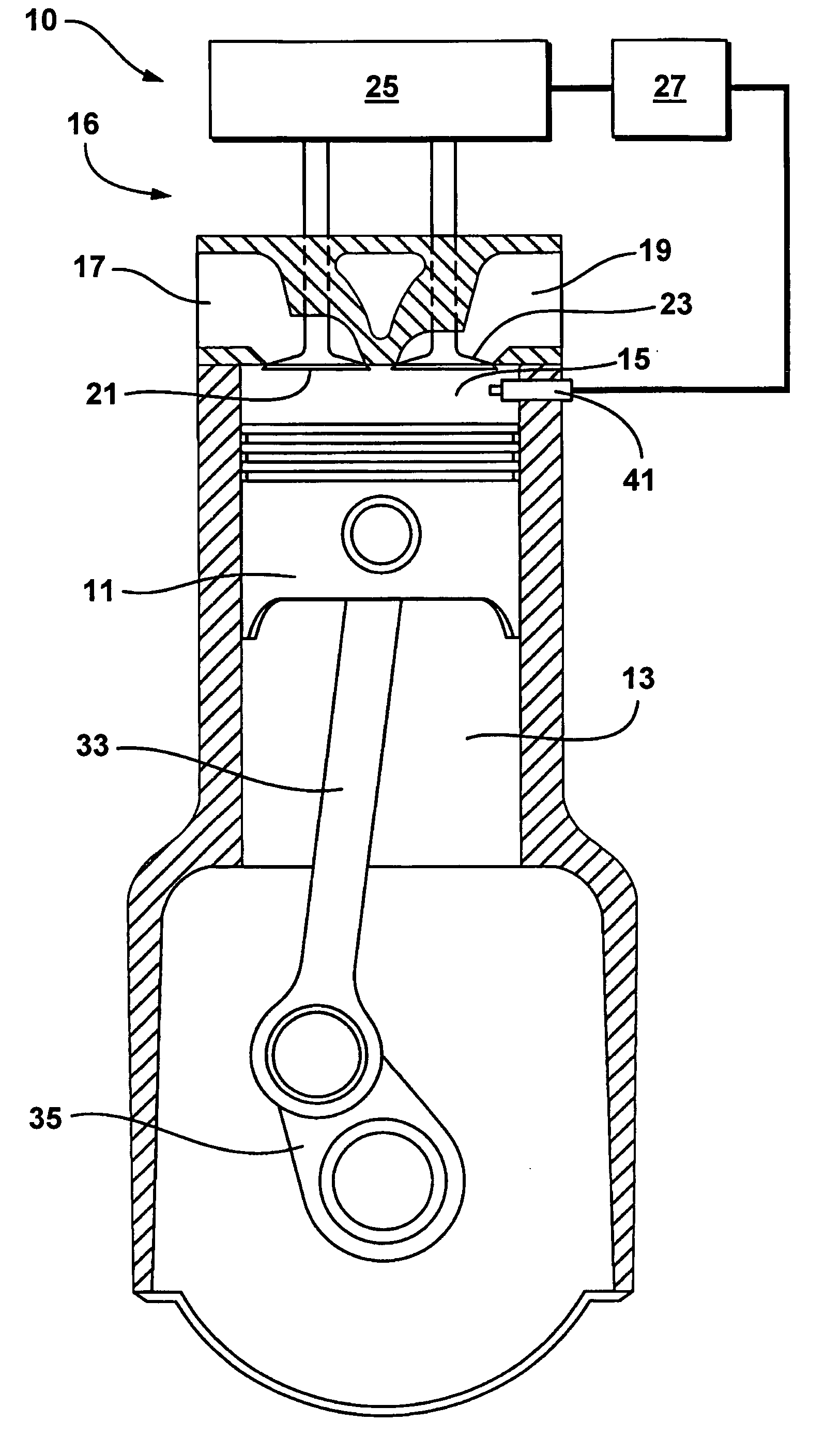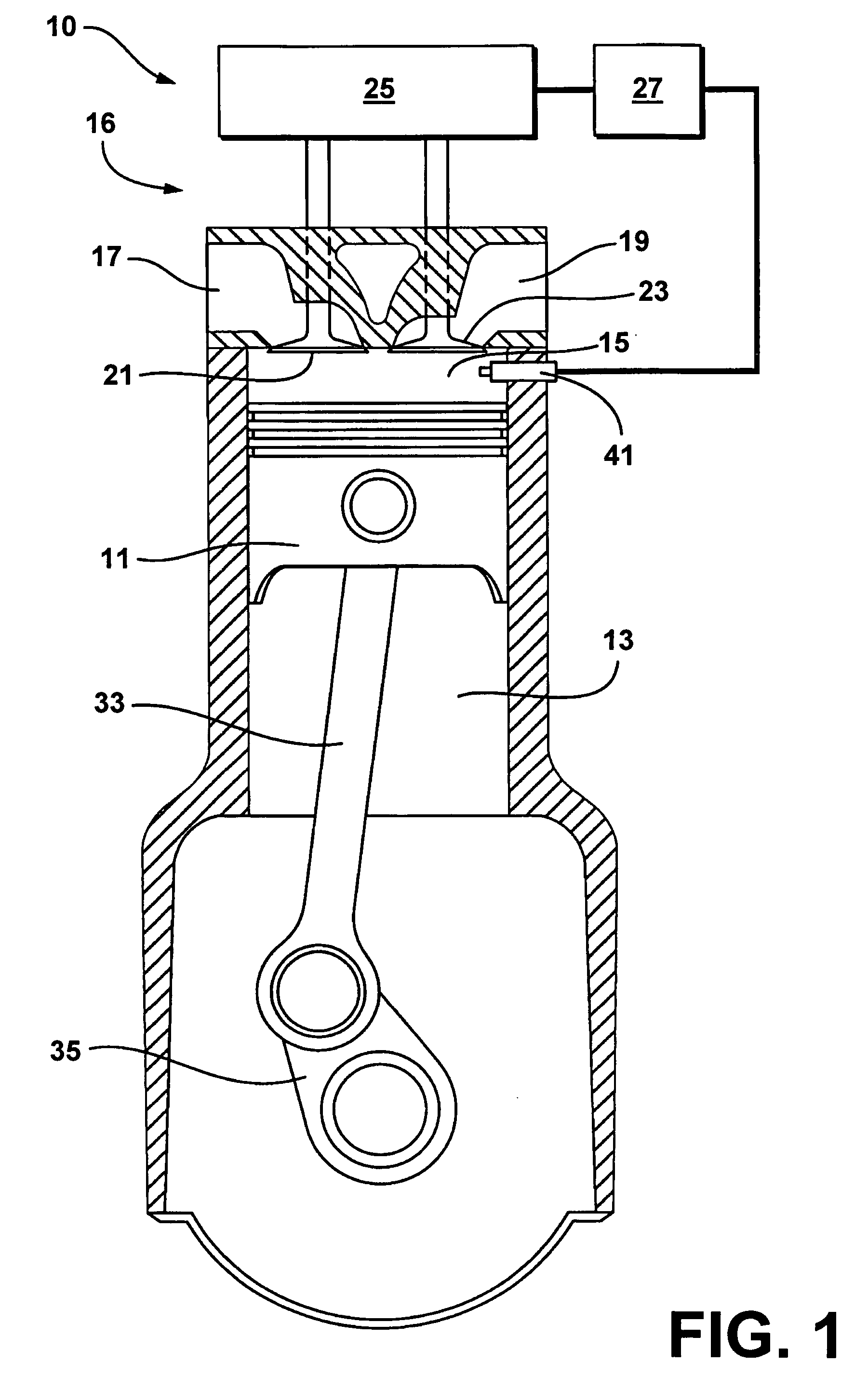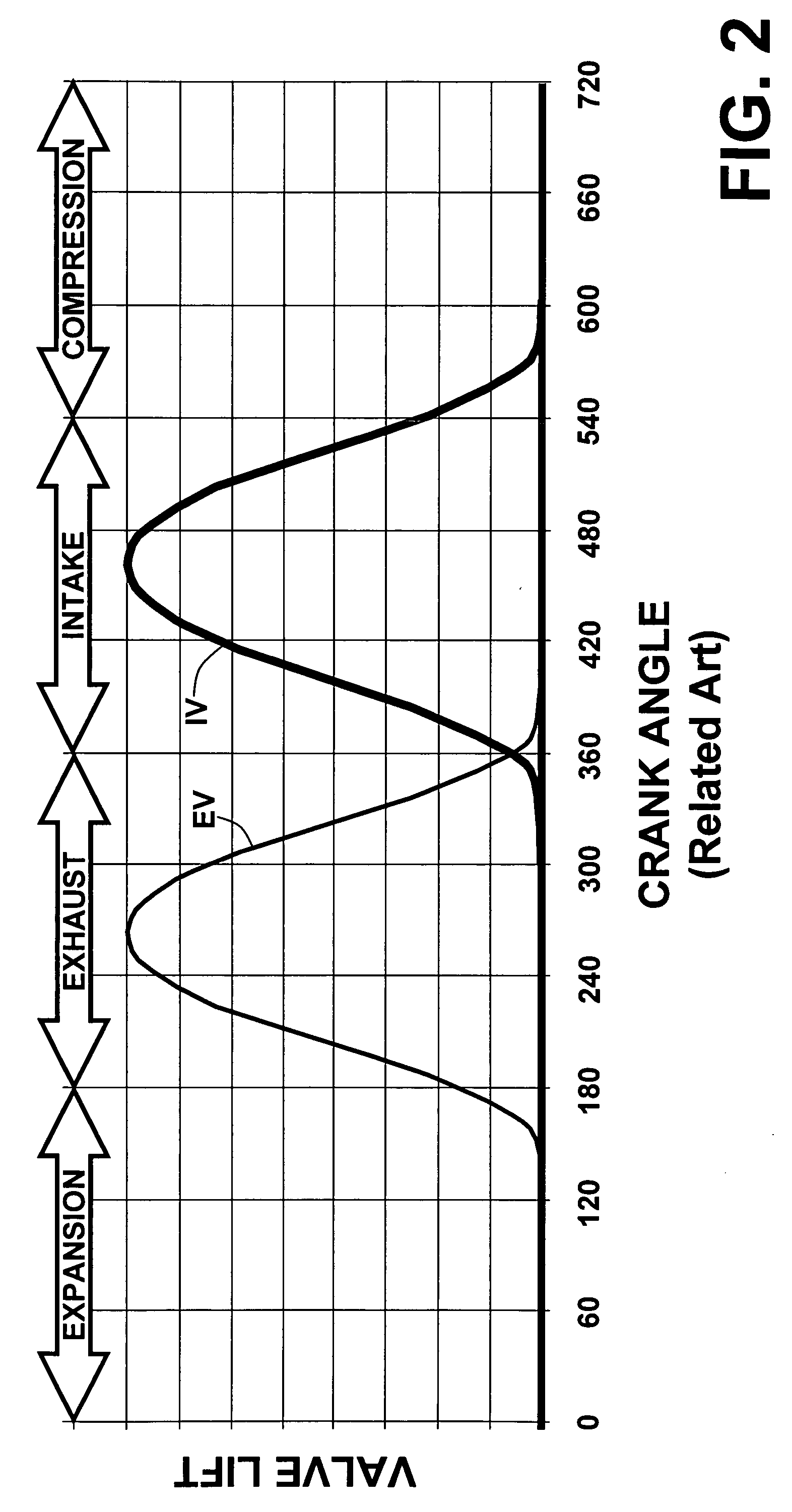Valve and fueling strategy for operating a controlled auto-ignition four-stroke internal combustion engine
- Summary
- Abstract
- Description
- Claims
- Application Information
AI Technical Summary
Benefits of technology
Problems solved by technology
Method used
Image
Examples
Embodiment Construction
[0025] With reference first to FIG. 1, an exemplary single cylinder four-stroke internal combustion engine system (engine) 10 suited for implementation of the present invention is schematically illustrated. It is to be appreciated that the present invention is equally applicable to a multi-cylinder four-stroke internal combustion engine. The present exemplary engine 10 is shown configured for direct combustion chamber injection (direct injection) of fuel vis-a-vis fuel injector 41. Alternative fueling strategies including port fuel injection or throttle body fuel injection may also be used in conjunction with certain aspects of the present invention; however, the preferred approach is direct injection. Similarly, while widely available grades of gasoline and light ethanol blends thereof are preferred fuels, alternative liquid and gaseous fuels such as higher ethanol blends (e.g. E80, E85), neat ethanol (E99), neat methanol (M100), natural gas, hydrogen, biogas, various reformates, s...
PUM
 Login to View More
Login to View More Abstract
Description
Claims
Application Information
 Login to View More
Login to View More - R&D
- Intellectual Property
- Life Sciences
- Materials
- Tech Scout
- Unparalleled Data Quality
- Higher Quality Content
- 60% Fewer Hallucinations
Browse by: Latest US Patents, China's latest patents, Technical Efficacy Thesaurus, Application Domain, Technology Topic, Popular Technical Reports.
© 2025 PatSnap. All rights reserved.Legal|Privacy policy|Modern Slavery Act Transparency Statement|Sitemap|About US| Contact US: help@patsnap.com



